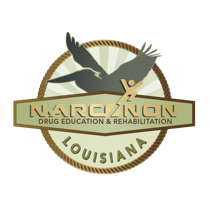Parents Can Help a Person Struggling with Polydrug Abuse

Many young lives can be saved if parents would have frank and thorough conversations with their college-bound children about the risks of drinking and abusing drugs.
A high school diploma is not enough to prepare a person for the drinking and drug-using culture that exists in many colleges and universities. Often many different drugs are passed around and students can end up using combinations of drugs (polydrug use). In fact, it could be said that young adults are not ready for college until:
- They are fully aware of the life-threatening danger of drinking, using drugs and especially polydrug abuse
- They have made firm decisions about their own futures in relation to substance abuse
- They are prepared to resist outside pressure encouraging them to abuse these substances
- And they are prepared to take action to save the lives of those who are not as aware as they are.
If Drug Education Fails

Unfortunately, drug abuse problems may surface when a young adult is far from home. Many parents see some of the signs and not realize what they are looking at. They may note symptoms like these:
- The individual stops calling or emailing home as frequently or at all
- There are more requests for money
- The person’s enthusiasm for school and educational goals are no longer topics of conversation
- Questions about classes or projects are answered vaguely or not at all
- The person sounds depressed, distracted, illogical and incoherent
- He (or she) is missing at the times he used to be reached by phone
- He says he can’t come home for holidays for reasons that don’t add up
There could be many reasons for these symptoms to show up, but a major one is substance abuse. A parent who sees these changes would be very wise to either visit as soon as possible, or ask the college to interview the young adult immediately.
If a young adult is not able to control his own drug or alcohol usage, the correct answer is an effective drug rehabilitation program. It is far better for a student to take a leave of absence from school and complete rehab than to simply hope the person will somehow get the drug problem under control.
Many young people have come to Narconon rehab centers directly from college, learned how to leave drug abuse behind and then returned to their educational plans. In some 50 drug rehab centers around the world, the Narconon program has been the solution for families who were struggling to save a young loved one. Narconon can help in your time of need as well.
A Real-Life Review of Drug Rehab Admissions
In November 2012, seventy recent admissions to a Narconon rehab facilities were reviewed, and their reported drug usage histories were noted. These histories were then sorted into two categories: did their drug usage tend to follow a pattern of polydrug abuse or were they generally single-drug abusers? The admissions ranged in age from 18 to 65. There were 53 men and 17 women.
Of the 70 admissions, 69% fit a general pattern of polydrug abuse.
Judgement Used in Sorting Admissions
Some judgment was used when sorting these drug use profiles to try to determine what the best category was for that individual.
Of these 70 people, only one reported abuse of a single drug, ever in his life. In that case, a 25-year-old man got started abusing OxyContin after a back injury.
Of the rest, those categorized as single drug abusers reported having abused multiple drugs, but at very different time periods. Many of them had perhaps used a drug like marijuana when they were young but then heavily abused a harder drug like heroin for several years preceding their admission to Narconon. Or perhaps they had tried Ecstasy once, used LSD several times a few years before, but were drinking heavily every day for the prior three years. So their essential pattern was single drug abuse.
The main drugs that were used by these single-drug-abusers were:
- Alcohol
- Heroin and prescription painkillers
- Cannabis
- Methamphetamine
Polydrug Abusers—Stories

In many cases, it is amazing that these polydrug users are still alive. Many of them were using whatever they could get their hands on, day after day. Here are a few summaries from this analysis.
A thirty-year-old man had been drinking one or two six-packs at a time, every day for 15 years. Added to this was a half gram to a gram of methamphetamine every day for the prior nine years and one to three joints every day. He had a family to support but was not working. He spent $1000 a month on drugs. When he was employed, he worked in the Oklahoma oil fields. “If I didn’t have drugs, I was miserable,” he stated. He had been charged twice with driving under the influence.
A twenty-five year old man was using a half gram to two grams of heroin per day, also using OxyContin, Norco, Suboxone or codeine, whatever he could get his hands on. He rarely drank but when he did, he got drunk. He abused Xanax or Valium occasionally, overdosing on Xanax one time. Crack cocaine, marijuana and Ecstasy would be added to the opiates for months or years, somewhat in rotation. He spent $1200 on drugs in a month and had been to rehab twice before.
Perhaps the worst stories were these:
A nineteen-year-old woman had been smoking five blunts (hollowed-out cigars filled with another substance) of marijuana or Spice for a year, along with abusing opiates. She was shooting heroin, hydrocodone or oxycodone. She was also abusing Xanax and Ativan daily and using cocaine 20 days a month. She added a stimulant like Adderall or methamphetamine twice a month, and occasionally used LSD, Ecstasy or an over-the-counter cough medication. She had been to two rehabs before.
A twenty-year-old-man who had been to one rehab before was drinking most days of the month, choosing beer, whiskey or vodka. He had been taking as many as fifty 15mg hydrocodone pills, or between 80mg or 240 mg of oxycodone a day for the prior two years. For three years, he had been adding Xanax and trazodone, an anti-anxiety medication and an antidepressant, to his daily use. For a year and a half, he had also been injecting methamphetamine and had been a daily abuser of marijuana for six years. He wound up being charged with assault and was jailed before finding his way to rehab again.
“There was a point in time that I was shooting cocaine and heroin and meth all at the same time…”
Why would anyone ever use so many drugs at once? A young woman who was interviewed about her polydrug abuse described the phenomenon like this: “There was a point in time that I was shooting cocaine and heroin and meth all at the same time. It was like feeding a monster. I was just ferocious about not ever being sober.”
Even these Individuals Can Recover
The very good news is that even after these brutal levels of drug abuse, these individuals can and do recover their sobriety on the Narconon drug and alcohol rehabilitation program. There needs to be a repair of the heavy burden of drug toxins that this kind of abuse leaves behind and a person must learn how to recover from all the harm they have done to themselves and others. Life skills must be built up again, because the person has been relying on lies and manipulation to continue their drug abuse.
The Answer to Polydrug Abuse and Addiction
The true and final answer to polydrug use or addiction is sobriety that is created by the addicted individual himself. To accomplish this goal, it is necessary to help that person repair his own life skills and brighten his awareness and outlook. This may sound ambitious but it is done every day at Narconon drug rehabilitation centers around the world.
The Narconon program uses no substitute drugs. Instead, it provides nutritional support for each person who needs to clean up his body and mind from years of drug abuse. Each person also goes through life skills training which give them tools which lead to stability, self-respect and a return of personal values.
The goal is long-term success and a drug-free individual.
Helping a Loved One
If you suspect prescription drug or illicit drug abuse by a loved one, or see signs of excessive alcohol abuse, don’t wait for things to get worse. Don’t expect your loved one to reach out for help because by the time he (or she) does, it could be too late. Contact Narconon for help. Intake staff at Narconon are experienced in helping family members understand the true nature of the problem they may just be seeing the smallest traces of.
There are also situations where the drug abuse is well known and heartbreaking. Family may have tried over and over to get the loved one into rehab and he refuses every time. Families may despair of getting a person addicted to multiple drugs into a rehab program. The drug user may be so immersed in the addicted and so overwhelmed by his need for more drugs that he can’t ask for help. Their offers of help may be brutally rejected.
Even this person can recover from this addiction at a Narconon drug and alcohol rehabilitation center. Narconon Intake staff can help you. Talking directly to the addicted person or helping you arrange for immediate intake at a Narconon center near you - these are all part of the job.
Helping the person arrive at the doors of a Narconon drug rehab center may require the assistance of an interventionist. It sometimes requires that someone to sit with the addicted person and gently and persistently remind him (or her) of how life can feel when you are not affected by drugs. If this is needed, a Narconon rehab center can recommend a good interventionist to help bring this problem to an end.
It may take a few days of reminders before the addicted person finally realizes that real help can help him walk out of this nightmare. Most of the time, the addicted person simply has no hope of recovery and feels like he is not worth helping. When you can penetrate his world of pain and constant cravings, you can reach the person who really does want to be sober.
For the majority of graduates from this program, the Narconon program was the key to their sober success. If you want to help a polydrug abuser call Narconon.
Polydrug Abuse | Polydrug Abuse Reports Polydrug Nicknames | Polydrug Recovery
